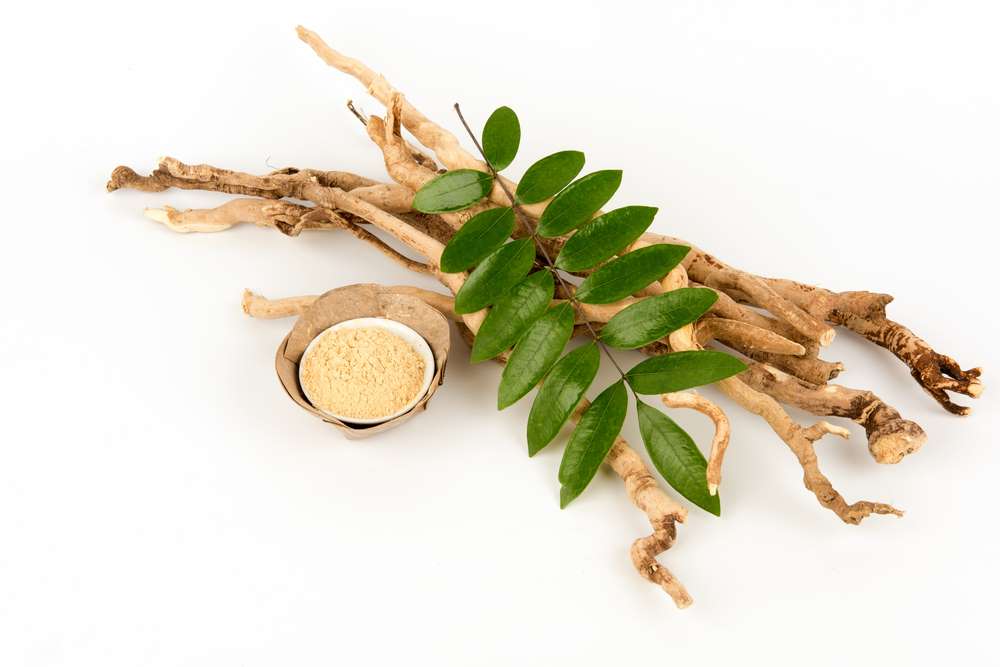

Tongkat Ali and Ashwagandha are two renowned natural supplements, each with a rich history of traditional use in their respective regions of Southeast Asia and India.
Between Ashwagandha vs Tongkat Ali, which is a better herb? And is Ashwagandha safer compared to Tongkat Ali?
Whilst, both herbs offer a diverse range of potential health benefits, but they differ significantly in their mechanisms of action and primary uses.
In this article, we will deep-dive into the primary use and benefits of Tongkat Ali and Ashwagandha, side effects, user reviews and whether you should combine both herbs.
Testosterone Production
Multiple studies showed Tongkat Ali releases more testosterone production than Ashwagandha. Tongkat Ali is known to boost testosterone between 20% to 581%, making it higher than Ashwagandha’s moderate increase.
Weight Loss
Tongkat Ali burns fat faster than Ashwagandha if you are planning to lose weight. Several studies showed Tongkat Ali reduces fat loss and BMI in obese adults after 100 days. Tongkat Ali is a better weight loss supplement than Ashwagandha.
Mood & Stress
Ashwagandha performs better to reduce anxiety and stress compared to Tongkat Ali. Whilst both herbs reduce cortisol (i.e stress hormones), wrong dosage and prolonged usage of Ashwagandha may cause emotional numbness, feeling detached and unresponsive.
Immune System
Randomized controlled Tongkat Ali clinical trial recorded sufficient evidence on the improvement of immune system, indicated by the increase of CD4+, T-cells. No study was done on Ashwagandha to suggests direct improvement on the immune system.
Sports performance
Both Ashwagandha and Tongkat Ali recorded sufficient evidence to suggest improvements in stamina, energy and other anaerobic performance parameters. Both herbs perform equally well based on real-life user feedback.
Libido
Tongkat Ali performs better than Ashwagandha in promoting male sexual performance, with higher longer erection time and sperm motility. Most studies on Tongkat Ali was done on male with androgen deficiencies and aging men.
There is no definite answer to which herb is better as both Tongkat Ali and Ashwagandha have different mechanisms of action to revitalize health. The effectiveness of each herb is largely dependent on your short-term and long-term health goals, age, lifestyle and exercises.
Tongkat Ali performs better in areas such as boosting testosterone, libido, and immune system and restoring overall hormonal balance in order to unlock other health benefits. On the other hand, Ashwagandha is mainly used to improve mood, and anxiety, reduce brain fog or reduce stress. However, the rising concern about Ashwagandha’s side effects on liver damage and emotional numbness has caused users to switch to Tongkat Ali as the preferred herb for long term use.
Let’s deep-dive into the benefits of both herbs to understand which benefits are best suited to your health goals.
Tongkat Ali, commonly known as Malaysian Ginseng, is a Southeast Asian herb known for its various health benefits.
One of its most notable benefit is its potential to increase testosterone production, which can lead to improved muscle growth, strength, libido, and sexual health. There are growing scientific evidence, clinical trials and studies to support the testosterone production in male and female from 25 to 70 years.
Tongkat Ali helps with weight loss by boosting metabolism and burning more fat whilst increasing testosterone levels to convert energy more efficiently, and curbing stress eating or overeating habits. Tongkat Ali is a weight loss supplement that reduces your Body Mass Index (BMI) by supporting your exercise routines and diet.
Additionally, Tongkat Ali has been found to have ergogenic effects, it boosts energy levels and enhances physical endurance, making it an attractive option for athletes and fitness enthusiasts. Tongkat Ali is clinically tested in endurance race, cycling and other sports which makes it popular as as a pre-workout sports supplement.
Tongkat Ali also offers adaptogenic stress-reducing properties, as it helps decrease cortisol levels, allowing the body to better manage stress and promote overall mental and physical well-being. Tongkat Ali’s effect to boost dopamine made it a popular supplement amongst busy professionals.
Tongkat Ali may have mild to moderate effects on libido and a Tongkat Ali study in 2022 showed that Tongkat Ali contains PDE-5 inhibitory effects on the blood vessels causing more blood flow to the penis, improving erectile function on aging men.
Other notable Tongkat Ali benefits include its immune system boosting capabilities, anti-cancer properties, as well as its ability to lower blood sugar and pressure.
Despite the many potential benefits of Tongkat Ali, there are some drawbacks and side effects that should be considered before incorporating it into one’s supplement routine.
For first-time users, you may experience mild-to-severe side effects at very high doses such as insomnia, irritability, and restlessness. The best way is start with low doses at 100 mg daily, and gradually build up the dose to 400 mg per day until your body builds new levels of tolerance.
Refer to our list of common side effects of Tongkat Ali and how best to mitigate them.
The side effects of Tongkat Ali are caused by adulterants, contaminants and impurities in the Tongkat Ali extract. Therefore, users are advised to use clinically tested Tongkat Ali supplements using the latest herbal hot water extract for minimal side effects.
It is worth noting that most of the side effects of Tongkat Ali can vary depending on where it is sourced or the manufacturer, which may affect its efficacy and safety.
Ashwagandha is an adaptogenic herb with a long history in Ayurvedic medicine that offers a number of purported of health benefits.
One of the most popular claims of these adaptogenic properties is that Ashwagandha helps the body cope with various stressors, reducing cortisol levels and effectively managing anxiety and stress – it helps keep you calm.
Ashwagandha has demonstrated some potential in improving cognitive function, including memory and focus, due in part to its antioxidant properties that protect brain cells from oxidative stress. The same study on cognitive function also showed that Ashwagandha extract has been shown to help maintain homeostasis and psychomotor abilities in times of stress, lending further credence to its claims as a calming agent.
Another feature of Ashwagandha is that it contains withanolides, compounds that possess anti-inflammatory properties, which can support the immune system and alleviate symptoms of chronic inflammatory conditions.
Other benefits of Ashwagandha include enhancing athletic performance by improving strength, endurance, and muscle recovery. Some studies even indicate that it can be used to promote reproductive health, particularly in men, by increasing sperm count and motility, while also improving sexual function in women.
There are some less well established benefits of Ashwagandha supplementation; these include improved heart health, by increasing VO2 max levels, as well as lower blood sugar and cholesterol (triglycerides).
However, it should be noted that these particular set of benefits are not universally applicable and are explored in only a limited number of studies.
While Ashwagandha offers several purported health benefits, it’s growing list of side effects may be detrimental to health. It is essential to consider its potential drawbacks before consuming Ashwagandha.
The rising concerns over Ashwagandha’s effects on thyroid hormones have led to a permanent ban by Denmark on April 2023. In a report published by the Danish Technical University (DTU) in 2020, Ashwagandha has harmful effects on thyroid, sex hormones, and it may induce abortions. Other EU states such as Finland and Sweden may ban Ashwagandha soon due to the growing safety concerns.
Excessive use and long-term use of Ashwagandha may lead to users feeling emotionless, a feeling often described as emotional numbness with risks of falling into a state of depression due to hormonal imbalances caused by a high dosage of Ashwwagnadha.
Some individuals may experience side effects from Ashwagandha such as gastrointestinal issues, headaches, and drowsiness, which could interfere with their daily activities.
Additionally, Ashwagandha may stimulate thyroid hormone production in some individuals, leading to increased thyroid hormone levels that can be problematic for those with pre-existing thyroid disorders. Those who have an allergy to nightshades or have certain grass allergies may also not tolerate Ashwagandha well.
Another concern is the possibility of drug interactions; Ashwagandha may interact with certain medications, including sedatives and blood pressure medications, potentially causing adverse effects or reducing the effectiveness of these drugs.
Some have been even more vociferous, with the McGill University Office for Science and Society criticizing proponents of Ashwagandha, citing Ashwagandha has been poorly studied and has a suspected potential for worsening autoimmune conditions and causing miscarriages.
Lastly, it may be difficult to determine the source and composition of Ashwagandha supplements as, unlike Tongkat Ali with Physta®, there does not appear to be a standardised formulation for extracts of this herb.
Unregulated herbal supplements may pose issues in the form of contamination with heavy metals, toxins or other undesirable materials.
Despite studies showing Ashwagandha reduces cortisol (stress hormones) and anxiety, Ashwagandha main side effect is emotional blunt, feeling numbness, detached, and emotionally unresponsive to events surrounding your daily life.
According to BuzzFeed and Forbes, several Ashwagandha users reported feeling of emotionally detached and unresponsive.
"After taking Ashwagandha for a few months, the emotionally blunted feeling could definitely be noticed. It felt as if you would just experience less feelings"
Adams (Australia).
“Blunted emotions can affect your concentration, motivation, mood, sex drive, feeling of connection to your body and others, and create a feeling of emptiness,” said Dr. Leah Sharman, a research fellow at the University of Queensland
A medical doctor on Tiktok reported said he took 400-milligram doses of ashwagandha twice a day for 30 days, and by the second week, started feeling depressed which worsened until he stopped (his video garnered 172,000 likes and 3.5 million views).
Other users shared the same sentiment after taking Ashwagandha on TikTok.
“You feel empty/numb as if you’re depressed,” said a user who took Ashwagandha on TikTok.
According to fitness health coach, Greg O’Gallagher , Ashwagandha may cause a reduction of feelings, leading to anhedonia, blunted emotions, and apathy.”
Ashwagandha has recorded more downsides from its rising side effects such as jaundice, liver damage, frequent nausea and emotional numbness that affects mental health, especially for those who are susceptible to hormonal changes (eg women). As long-term studies showed more side effects on overall health, prolonged or continuous consumption of Ashwagandha for more than 3 months may lead to liver failure, anhedonia, depression and potential chronic kidney disease (CKD).
Related Article: Does Ashwagandha Kill Your Emotions?
Multiple studies reported ashwagandha-induced liver injury from patients who consumed ashwagandha, ranging from severe jaundice to chronic cholestatic liver damage. Health experts concluded that Ashwagandha causes drug-induced liver injury (DILI) and the liver injury was classified as hepatocellular with pronounced hyperbilirubinemia (i.e jaundice) due to damaged liver cells. Users taking 500mg of Ashwagandha expose the risk of liver damage as evidenced in patient reports.
A 2020 study on the effects of ashwagandha on liver function in five patients showed elevated liver enzymes, and some were diagnosed with drug-induced liver damage, which regressed after eight months. Study concluded that the liver injury caused by ashwagandha is typically cholestatic with severe jaundice and pruritus, and the liver tests normalized in 1 to 5 months when the user stopped taking ashwagandha.
In another 2021 study, Weber et al. presented a case of a 40-year-old man, who was diagnosed with an acute liver injury after consuming consumed ashwagandha extract (500 mg) for a year, before he switched to Ashwagandha Now (450 mg, Now Foods) for another 20 days. The report showed that he experienced jaundice, pruritus, and elevation of transaminase after taking ashwagandha.
Yes, you may take Tongkat Ali and Ashwagandha together to boost your daily energy needs but users are cautioned to take both herbs in low doses in short duration (eg: less than 2 weeks). At the same time, it is not advisable to mix both Tongkat Ali and Ashwagandha in a single serving as it may increase the likelihood of liver damage due to continuous consumption. It is best to take a single herb at a time and monitor any gains or side effects before adding other herbs to your health stack.
As a long-term daily supplement, Tongkat Ali is the preferred choice for men due to its higher level of safety and toxicity limits, and proven efficacy on testosterone, energy, fat loss, stamina and libido. In comparison, Ashwagandha is mainly used in short duration (i.e less than 4 weeks) to achieve short-term goals such as regulating mood and stress due to severe side effects on liver injury and emotional health.
Tongkat Ali is known to promote sleep quality by increasing Non-REM sleep duration and reducing sleep latency (i.e time taken for you to fall asleep) by lowering the core body temperature during sleep whilst Ashwagandha promotes calming effects and reduces stress, which may help you sleep better. It is not advisable to take both Tongkat Ali and Ashwagandha before sleep, as the effects of polyherbal formulation (i.e by combining both Ashwagandha and Tongkat Ali) on sleep quality have not been well established.
Related Article: Does Tongkat Ali Improves Sleep?
Tongkat Ali performs better in promoting weight loss compared to Ashwagandha due to superior thermogenic and anabolic properties. Tongkat Ali contains thermogenic properties that promote higher metabolism and fat burn in the Brown Adipose Tissue (BAT) whilst there is limited study on Ashwagandha’s ability to promote weight loss. Another study showed a signification reduction in Body Mass Index in obese adults after 112 days of Tongkat Ali consumption, further strengthening the performance of Tongkat Ali to aid weight loss.
Related Article: Tongkat Ali as a Weight Loss Supplement
Both herbs have the potential to reduce fatty acids and triglycerides although Tongkat Ali supplementation may induce faster response time than Ashwagandha. A placebo-controlled study in 2017 showed a significant reduction of Free Fatty Acids (FFA) in young athletes consuming Tongkat Ali after 72 hours.
Two separate randomized controlled studies showed that Tongkat Ali performs better in lowering cortisol levels (16% reduction) vs Ashwagandha (13.7% reduction) after 30 days. However, long-term consumption showed that Ashwagandha performs better than Tongkat Ali with a significant reduction in cortisol levels by 23.7% after 60 days. Although this indicates that Ashwagandha is a better supplement for stress and anxiety, the side effects of ashwagandha on emotional numbness should be taken seriously if you are taking it long-term.
Reference Source:
The best Tongkat Ali Ashwagandha combo are Physta® and KSM-66®. Both Physta® Tongkat Ali and KSM-66 Ashwagandha are backed by 26 and 24 clinical trials respectively. This is the most potent Tongkat Ali Ashwagandha combo in the market today. However, users are cautioned against combining or taking Ashwagandha and Tongkat Ali together at high doses of more than 500mg due to the potential toxic effect on the liver, as reported by patients who took Ashwagandha NOW supplement.
Yes you may combine Tongkat Ali and Ashwagandha to reap more benefits, at least in theory. It is touted that the combination of Tongkat Ali and Ashwagandha can potentially offer a range of complementary and synergistic benefits, addressing various aspects of overall health and well-being.
By taking these two supplements together, users believe they may experience enhanced stress reduction, as both herbs have adaptogenic properties and can help lower cortisol levels. However, this is far from the truth as the effects of polyherbal formulation have not been studied.
Despite the lack of evidene, Tongkat Ali’s potential testosterone-boosting effects, combined with Ashwagandha’s support for reproductive health, may work together to improve overall sexual health and hormone balance in both men and women.
Moreover, the pairing of Tongkat Ali’s energy-enhancing and endurance-boosting properties with Ashwagandha’s ability to improve strength and muscle recovery can be particularly beneficial for athletes and fitness enthusiasts. Both Tongkat Ali and Ashwagandha also boast immune-system boosting properties, with both sharing potent anti-inflammatory properties as well as Tongkat Ali’s ability to increase the production of certain immune cells.
Tongkat Ali is known for building lean muscle mass and is used by semi-pro and professional bodybuilders in sports competitions compared to Ashwagandha.
According to 10-time Mr. Universe bodybuilding champion Sazali Samad, he used Tongkat Ali daily for 5 years to ensure optimal and healthy muscle growth from his workout training regime. He said, “Most bodybuilders chose Tongkat Ali due to its high crude protein content with higher anabolic properties that help better protein synthesis compared to Ashwagandha”.

While taking Tongkat Ali and Ashwagandha together may offer synergistic benefits, combining these two supplements in high doses may increase the likelihood of experiencing side effects from either or both, such as gastrointestinal issues, insomnia, irritability, drowsiness, and even potential kidney damage.
Our user analysis showed that it is redundant to take both Tongkat Ali and Ashwagandha if you are using them for testosterone or libido support. Furthermore, you are likely to get more negative drug interactions when taking Ashwagandha, leading to adverse kidney as sedative effects and other liver complications if you are taking blood pressure medications.
Therefore, it is essential to consult a healthcare professional before combining Tongkat Ali and Ashwagandha, especially for individuals taking medications or those with pre-existing medical conditions. Careful consideration and professional guidance can help ensure the safe and effective use of these supplements in combination.
Denmark is the first country in EU to ban Ashwagandha in April 2023 due to its negative effects on thyroid hormones and sex hormones, whilst Sweden, Finland and France are seriously considering issuing an official ban soon. The Swedish Food Agency and French Agency For Food, Environmental & Occupational Health & Safety (ANSES) are in serious talks on the health risks of Ashwagandha.
Ashwagandha is prohibited in Denmark and the Danish authorities have alerted the EU’s Rapid Alert System for Food & Feed as “serious risks” to health.
In conclusion, Tongkat Ali and Ashwagandha are two potent natural supplements, each offering unique health benefits that can potentially improve various aspects of well-being.
While Tongkat Ali is renowned for its testosterone-boosting effects, metabolism support, and adaptogenic properties, Ashwagandha is known for its stress-reducing abilities, cognitive enhancement, and support for reproductive health.
Combining these two herbs may offer synergistic benefits, but it is not encouraged due to adverse side effects on kidneys, emotions and hormonal imbalance in the thyroid.
Before taking Tongkat Ali or Ashwagandha, it is essential to consult a healthcare professional to ensure safe and effective use, especially for individuals with pre-existing medical conditions or those taking medications.

Naressa Khan contributes regularly on AKARALI and is part of the global Tongkat Ali research team. As a writer and journalist, Naressa specializes in nutrition, health supplements, and natural wellness. With this approach always in mind, she explores fact-based and scientific evidence of topics related to health, herbs and natural wellness.
Our articles are third party reviewed by our panel of experts and medical advisors to ensure the facts are accurate and credible. These are validated against multiple source references which include but not limited to research studies, peer-reviewed journals, pre-clinical studies, clinical tests and other credible publications.
Our panel of medical advisors and experts are highly experienced in their individual fields. However, they do not provide any medical advice or recommendations arising from content published in this article.
Disclaimer: The content published in this article is for educational purposes and not intended to provide any form of recommendations, directly or indirectly to purchase or consume herbal supplements, drugs, medications, alternative remedies and practices or any brands mentioned in this article. By reading this, the sole responsibility and decision lies on the reader to make an informed decision based on publicly available information published on the internet. Any herbal supplements can be used as a health supplement, dietary plan or to treat illnesses. However, we encourage you to consult your nearest doctor before making any purchase from this website or any other websites or social platforms after reading this article. We do not hold any responsibility or accountability for any products purchased from this website or any third-party websites that are linked to this articles, sales channels or social platforms.